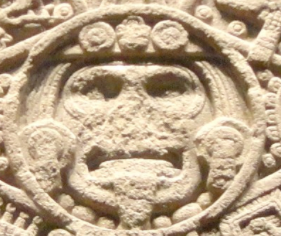

They don’t call him the Sane Titan.
And he’s purple because he’s an alien who Jim Starlin gave purple skin.
Hi, I’m Infrapink! I used to be @infrapink, but that instance is down. I’m also @infrapink and @infrapink


They don’t call him the Sane Titan.
And he’s purple because he’s an alien who Jim Starlin gave purple skin.


Before the printing press, introverted men worked the farm, while introverted women spun thread, made and repaired clothes, cooked, cleaned, nursed babies, and also worked the farm.
this is the same as what extroverts did, because back then, you contributed to the farm and the household whether you liked it or not.
At a celebration or festival, the introverts might gather in a corner to tell stories, but there was no way to avoid being part of the community back then.
No, he has his own bizarre approach
I generally do not connect to web sites from my own machine, aside from a few sites I have some special relationship with. I usually fetch web pages from other sites by sending mail to a program (see https://git.savannah.gnu.org/git/womb/hacks.git) that fetches them, much like wget, and then mails them back to me. Then I look at them using a web browser, unless it is easy to see the text in the HTML page directly. I usually try lynx first, then a graphical browser if the page needs it.
In European polytheism, there isn’t a clear division between the mundane and the divine, like you see in Christianity.
There are gods all over the place. Your house has a couple of gods in it. They aren’t powerful enough to kill you with lightning on a clear day, but they will still annoy you unless you leave out a little food for them.
Specifically in the Greek context, Protogenoi, Titans, Olympians, Gigantes, Nereids, Gorgons, Furies, Fates, Muses, and Nymphs are all gods of varying strength and prominence. Everybody worshipped Zeus, but only your family worships the house gods.
Likewise, in Scandinavia, you have your Aesir, Vanir, Jötunn, Dwarves, Elves, and so on. Gaels have the Sídhe, Fomoire, Tuatha Dé Dannann, Leprecháns, and whatever else. To an Arab pagan, djinn were a form of minor deity. The kami of Shinto continue to encompass everything from local spirits to the supreme creator, to the point that Japanese Christians and Muslims refer to God as Kami-sama.
[Much more info here]https://acoup.blog/2019/10/25/collections-practical-polytheism-part-i-knowledge/)
When Christianity caught on, other gods were out, but that didn’t stop people honoring their local house gods. Small gods were reïmagined as fairies; Christian clergy denied their reality, but belief in fairies was mostly seen as a harmless superstition, like not stepping on a crack in the road. Belief in fairies persists in Ireland; ironically, those who genuinely believe in the old gods are the most devout Catholics.
We see a similar phenomenon across history and culture. When Christianity met Vodún, people didn’t stop believing in their indigenous gods; instead, those gods became spirits who God put in charge of particular aspects of the cosmos, which is how we get Vodou.
Likewise, Zarathustra was a polytheist, but by the time Islam rose, Zoroastrians were down to two gods, with the others recast as basically angels. This concept in turn influenced Judaism and Samaritanism; Yahweh, the Hebrews’ patron deity, merged with El, the Semitic supreme deity, and the other gods became angels.
Because Christianity caught on as the Western Roman Empire was disintegrating, people felt like they were living through an apocalypse. Clergy said that, while the physical world was collapsing, the world to come was brilliant, and thus a sharp division was drawn between the mundane and the divine. Modern Euramericans are raised with this division; whatever our beliefs or lack thereof, we see it as fundamental, and thus retroactively and anachronistically apply it to pre-Christian paganism, whereas the pagans saw the divine as simply part of the world.